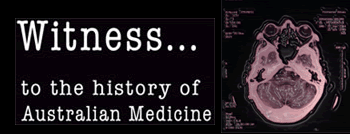


Tobacco Control: Australia's Role
Transcript of Witness Seminar
Introduction
Building the case for tobacco control
Producing, and Responding to, the Evidence
Campaigning for Tobacco Control
Economic Initiatives in Tobacco Control
The Radical Wing of Tobacco Control
Revolutionary Road
Tobacco Industry Strategies and Responses to Them
Campaign Evaluation
Managing Difficulties in Light of Community Consensus
Radical Wing Again
The Process of Political Change
Tobacco Campaigns Up Close
A Speedier Pace of Change
Political Needs and Campaign Strategies
Litigation and its Impacts
Insights from Tobacco Control
Tobacco Control in Australia in International Perspective
Appendix 1: Statement by Anne Jones
Endnotes
Index
Search
Help
Contact us

Trish Cotter:[51] What about tobacco tax increases over that early period? Surely that was another factor in reducing smoking rates?
Michelle Scollo: The first state to introduce a tobacco tax was actually Tasmania very briefly, wasn’t it Kathy?
Kathy Barnsley: In 1971 the progressive Liberal (Bethune) Government in Tasmania started drafting legislation to tax tobacco. They also did a number of other good things.
At the same time they wanted to prosecute the head of British American Tobacco and other executives for conspiracy. Those charges were later withdrawn. Subsequently British Tobacco bribed a politician to bring down the Tasmanian government, partly because they brought in a tobacco tax.
A couple of years later another Tasmanian Premier, Eric Reece, tried to introduce a tobacco tax in a deal with Gough Whitlam to have a tobacco tax so that Tasmania wouldn’t be in the Grants Commission any more.
That was a complete bizarre disaster and was kicked out by the Federal Court.
Michelle Scollo: So when we say tobacco tax what we’re talking about here is state tobacco licence fees on retailers based on the value, rather than the volume, of retail sales. That’s a very important distinction. So those fees were first successfully established in Victoria in 1974.
At first it was introduced at 2.5 per cent of the value of retail sales, and then it went up to 10 per cent. Other states started copying the idea and there was a leapfrogging effect. From 2.5 per cent it increased over a couple of years to 100 per cent of the value of retail sales which was a very substantial component of the price of cigarettes at the time.
And then because of action on a different case altogether, eventually those fees were determined to be unconstitutional. They had become so high they were deemed not just the cost of administering a regulatory function regarding tobacco sales, they were seen as revenue-raising, which they clearly were and had been for some time. So they were abolished at that stage and the federal excise duty was increased and the revenue from that was provided to the state governments instead.
Ann Westmore: There must have been big state variations in the price of cigarettes over the period that different states were introducing and increasing these tobacco licence fees. What impact did that have?
Simon Chapman: Queensland never did {introduce a tax on the value of retail tobacco sales}.
Lyn Roberts: No, that’s not true. I worked on the campaign in 1988 and put it into place. Steve Woodward[52] drove that campaign.
Ann Westmore: Lyn, can you tell us about how that campaign was conducted?
Lyn Roberts: After the state tobacco licence fees started increasing, and after the establishment of VicHealth in ‘87 and SA Health Promotion Foundation[53] shortly after, there was a change in the Queensland government. Bjelke-Petersen[54] had gone, Expo was on, and the state was struggling financially.
In 1988 I went to Queensland and worked with the Queensland Cancer Fund under the direction of Steve Woodward from ASH (Action on Smoking and Health). They’d never had a state tobacco licence fee because tobacco growing received a huge amount of protection. We ran a campaign quite similar to that in other states to stop the bootlegging of cigarettes because they were so much cheaper in Queensland.
We felt that the Premier, Mike Ahern,[55] was in a situation that he needed money and might be interested to introduce a tobacco tax. We conducted a campaign over seven months that was quite successful. It included providing a small compensation fund to help tobacco growers look for alternative products. So, yes, Queensland did actually have state tobacco licence fees between 1989 and 1997.
 |
Witness to the History of Australian Medicine |  |
© The University of Melbourne 2005-16
Published by eScholarship Research Centre, using the Web Academic Resource Publisher
http://witness.esrc.unimelb.edu.au/134.html